WHO WE ARE
Governance
The Foundation is steered by two bodies: the Foundation Council and the Executive Board. Each body can have up to five members. The current members of the Foundation Council work in a voluntary capacity for the Foundation. The founder, Prof. Dr. h.c. mult. Hasso Plattner, is a strategic advisor to the Foundation Council and the Executive Board in all matters of business.
Foundation Council
The Foundation Council advises and supervises the Executive Board, approves the annual financial statements, and decides on the Foundation’s strategy. It consists of three family members, Sabine Plattner, Dr. Kristina Plattner, and Stefanie Plattner, as well as two external members, Prof. Dr.-Ing. Dr. Dr. h.c. Sabine Kunst and John Flüh, Chair of the Foundation Council.
The family members are permanent members of the Foundation Council and their term of office is unlimited. The external members are designated by the Foundation Council and their five-year term can be renewed up to a maximum of three times. The Foundation Council is involved in all decisions of fundamental importance for the Foundation. The Chair coordinates the work of the Foundation Council, convening and leading its regular meetings.
The Foundation Council meets at least three times a year and decides by resolution, which can also be passed outside of meetings. Resolutions require a simple majority of the votes cast.
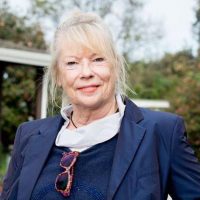
Sabine Plattner
Sabine Plattner is a permanent member of the Foundation Council of the Hasso Plattner Foundation. She is the Founder of Sabine Plattner African Charities (SPAC), a charitable subsidiary of the Foundation, and a Founding Director of the Leadership for Conservation in Africa (LCA).
Sabine Plattner
Sabine Plattner is a permanent member of the Foundation Council of the Hasso Plattner Foundation. She is the Founder of Sabine Plattner African Charities (SPAC), a charitable subsidiary of the Hasso Plattner Foundation and a Founding Director of the Leadership for Conservation in Africa (LCA).
After her career as a teacher in Germany and the establishment of SPAC gGmbH in 2008, she focused her attention on the protection of biodiversity in Africa. She is firmly convinced that a balanced coexistence between people and nature is desirable and possible, which can only be achieved through education, empowering especially the younger generations through knowledge, to make sound decisions for their own future.
The impact areas of her work as a conservationist and pedagogue include the Early Childhood Development (ECD) programs and curriculum enrichment by embedding conservation knowledge into the programs of primary schools in Africa, referred to as EduConservation. The latter is now also planned for secondary schools. At tertiary level she supports international scientific research focused on primatology and forest elephants within the Congo Basin.
Within the context of the protection of nature, her primary focus is on the African rainforests, especially in the Congo Basin, investing time and resources in, and for, the ongoing protection of the Odzala Kokoua National Park in the Republic of Congo. She views the engagement with and inclusion of the local population as crucial for conservation success, which is evident in the work that she supports in the region. Attending to the livelihood needs of the local people and the importance of sound income streams, she founded and is subsidising Kamba African Rainforest Experiences (formerly Congo Conservation Company) in her private capacity. In doing so, she aims to support the region’s socio-economic development and to draw attention to the value of these ecosystems through eco-tourism. These private initiatives combined with her philanthropic engagement in the Odzala-Kokoua region, contribute significantly to a balanced coexistence between people and nature.
As one of the Founding Directors and former Chairperson of the Leadership for Conservation in Africa (LCA), Sabine Plattner encourages and supports the principle of Public-Private Partnerships. Through example, and in her regular public appeal as keynote speaker, she influences business leaders to become involved in conservation, by investing time and money in conservation-led socio-economic development programs.
In 2019, Sabine Plattner received the Medal de Chevalier from the President of the Republic of Congo and in 2020 the Bundesverdienstkreuz from the President of Germany in acknowledgment of her contribution to the conservation in the Congo Basin.
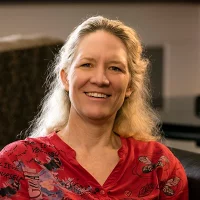
Dr. Kristina Plattner
Dr. Kristina Plattner is a permanent member of the Foundation Council of the Hasso Plattner Foundation. She serves on several advisory boards of the Foundation’s initiatives, focusing her efforts on projects related to the African continent and on the topics of education, environmental protection, and nature conservation.
Dr. Kristina Plattner
Dr. Kristina Plattner is a permanent member of the Foundation Council of the Hasso Plattner Foundation. She serves on several advisory boards of the Foundation’s initiatives, focusing her efforts on projects related to the African continent and on the topics of education, environmental protection, and nature conservation.
Her interest in the natural sciences has played a key role in her academic choices: In 2002, she received her Bachelor of Science in Zoology and Biochemistry from the University of Cape Town, as well as her honors degree, a Bachelor of Science in Medicine. In 2011, she completed her PhD in the fields of Exercise Physiology, Human Biology, and Neuroscience. As part of her academic work, she has published various articles on sports medicine and neurology in scientific journals and portals – for instance in the Journal of Electromyography and Kinesiology (2011), the Scandinavian Journal of Medicine & Science in Sports (2012), and in Science Direct (2014).
Kristina has lived in South Africa since 1998. Due to her deep connection to the African continent, she has been a driving and decisive force behind the Foundation’s philanthropic projects in Africa since the early 2000s. She is particularly committed to sustainability, future-related issues, and social responsibility. In this, she considers education – the essential motor of development – to be key.
Accordingly, one of the projects closest to her heart is the Hasso Plattner d-school AFRIKA at UCT in Cape Town which opened in March 2017 – the first HPI School of Design Thinking on the African continent. Kristina is very closely involved with the school’s strategic management. Sister organizations at Stanford and at the Hasso Plattner Institute in Potsdam served as models for the school. She is enthusiastic about its pragmatic, user-oriented approach: The focus of product development is less on extraordinary design and more on a precise understanding of what the customer wants and needs.
Her passion for the African continent and aspiration to preserve African nature and culture for future generations are traits that Kristina shares with her mother, Sabine. To raise awareness for sustainability, she is also involved in her mother’s extensive environmental protection and education projects within the scope of SPAC. This includes, for example, concepts for the increased integration of Africa-centric content into school curricula. As a biologist, nature conservation research projects, such as in the Republic of the Congo, are particularly close to her heart. She is, for example, committed to making communities aware of the value of their resources and working with them to develop prospects for sustainable income from nature conservation rather than rainforest deforestation. This includes Kamba African Rainforest Experiences (formerly Congo Conservation Company), an environmentally conscious tourism project for the Odzala-Kokoua National Park, which offers visitors the extraordinary opportunity to experience gorillas and chimpanzees in a single nature reserve.
Another focus of interest for Kristina is Data4Life. Data4Life’s goal is to create digital solutions to improve global health.
In Kristina’s experience, the essential prerequisite for getting things moving is to build trust-based relationships: “To convince many people of a good idea, it is necessary to first win over the individual.”
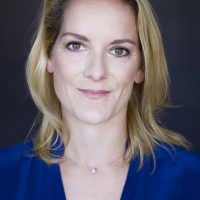
Stefanie Plattner
Stefanie Plattner is a film director and producer, and Managing Director of Storming Donkey Productions in Germany, which she founded in 2012. Stefanie is a permanent member of the Foundation Council of the Hasso Plattner Foundation, as well as the founder of TALES. She plays an active role in the work of DAS MINSK Kunsthaus in Potsdam.
Stefanie Plattner
Stefanie Plattner is a trained actor and worked for several years in theater and film productions. She is a film director and producer, and the Managing Director of Storming Donkey Productions, a company she founded in 2012. Storming Donkey Productions developed the feature film Hördur, directed by Ekrem Ergün, which won the Best Children’s Film at the Berlinale in 2015 and the German Critics Film Award in 2016. Several other feature and documentary films by Storming Donkey Productions have been screened at international festivals such as the Berlinale, the Chicago International Children’s Film Festival, and the SXSW Film Festival in Austin.
Stefanie founded the non-profit organization TALES, a multimedia storytelling initiative that seeks to foster a deeper understanding and appreciation for the world’s many diverse cultures and their associated mythologies, and thus contribute to the preservation of our environment. The first installment in this series, the book “Congo Tales” (Random House/ Prestel, 15 November 2018) was featured on the front pages of major newspapers, such as the New York Times. The second entry, the short film “The Little Fish and the Crocodile,” was screened at various film festivals and won the main prize at the 2018 Chicago Film Festival. With TALES, Stefanie is currently producing the World of Us, a metaverse that combines cultural exchange, interaction, and inclusivity through an immersive, digital platform that connects young users from around the world.
Stefanie is a permanent member of the Foundation Council of the Hasso Plattner Foundation. She was involved in the conception of the new exhibition space DAS MINSK Kunsthaus in Potsdam and continues to be involved in the conception and the program of the museum, which shows contemporary and GDR works. In addition, Stefanie is the co-chair of the Advisory Board of WPI, a non-profit organization dedicated to the digitization of catalogs raisonnés and modernization of archival research in art.

John Flüh
John Flüh has been with the business law firm Hengeler Mueller in Berlin since 1991, practicing as a lawyer and notary in corporate law and real estate law. He has served as the Chair of the Foundation Council since its establishment in 2015.
John Flüh
John Flüh has been with the business law firm Hengeler Mueller in Berlin since 1991, practicing as a lawyer and notary in corporate law and real estate law. He has served as the Chair of the Foundation Council since its establishment in 2015.
John studied at the University of Kiel and holds a master’s degree in public administration from the John F. Kennedy School of Government, Harvard University.
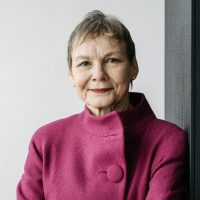
Prof. Dr.-Ing. Dr. Dr. h.c. Sabine Kunst
Prof. Dr.-Ing. Dr. Dr. h.c. Sabine Kunst joined the Foundation Council of the Hasso Plattner Foundation in January 2023. She is an engineer, with a wealth of experience in scientific and academic management positions.
Sabine Kunst
Prof. Dr.-Ing. Dr. Dr. h.c. Sabine Kunst joined the Foundation Council of the Hasso Plattner Foundation in January 2023. She is an engineer, with a wealth of experience in scientific and academic management positions.
She was appointed Chair of the Board of the Joachim Herz Foundation in Hamburg in January 2022. Prior to that, she was President of Humboldt-Universität zu Berlin until the fall of 2021 and, from 2011 to 2016, served one term as Brandenburg State Minister of Science, Research and Culture. From 2007 to 2010, she was President of the University of Potsdam. Prior to her career in scientific and academic management, Kunst spent many years working on major infrastructure projects to secure water supplies even in South America and South Africa.
Whether as an expert on science and academia or during her time as an engineer, Sabine Kunst has always been driven to lay the foundations for people and communities to live and thrive.
Executive Board
The Executive Board reports to the Foundation Council and is responsible for executing the Foundation’s strategy. It may contain up to five members, elected for a five-year term each, with the possibility for up to three re-elections. The members of the Executive Board jointly manage the business of the Foundation. They develop the Foundation’s roadmap and financial plan and coordinate its implementation with the Foundation Council. Through regular dialogue, quarterly reports, and strategic workshops, the Executive Board keeps the Foundation Council informed about all developments and progress across the Foundation’s ecosystem.
The Executive Board currently consists of two members: Dr. Stephanie Ullrich and Dr. Rouven Westphal.
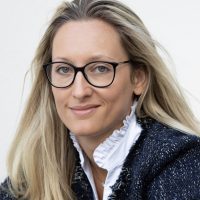
Dr. Stephanie Ullrich
Dr. Stephanie Ullrich is a member of the Executive Board of the Hasso Plattner Foundation. In this role since 2019, she oversees the focus areas Art & Culture as well as Social & Conservation and manages the tax and legal functions of the Foundation.
Stephanie Ullrich
Dr. Stephanie Ullrich is a member of the Executive Board of the Hasso Plattner Foundation. In this role since 2019, she oversees the focus areas Art & Culture as well as Social & Conservation and manages the tax and legal functions of the Foundation.
Stephanie earned her LL.M. from the University of Chicago and her doctoral degree in law from the University of Vienna.
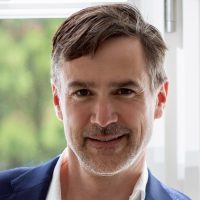
Dr. Rouven Westphal
As a member of the Executive Board of the Hasso Plattner Foundation since 2015, Dr. Rouven Westphal oversees the focus area Science & Education and the investment office of the Foundation’s endowment.
Rouven Westphal
As a member of the Executive Board of the Hasso Plattner Foundation since 2015, Dr. Rouven Westphal oversees the focus area Science & Education and the investment office of the Foundation’s endowment.
Rouven earned his diploma in mechanical engineering from Technical University Hamburg and his doctoral degree in business administration from the University of Bamberg.